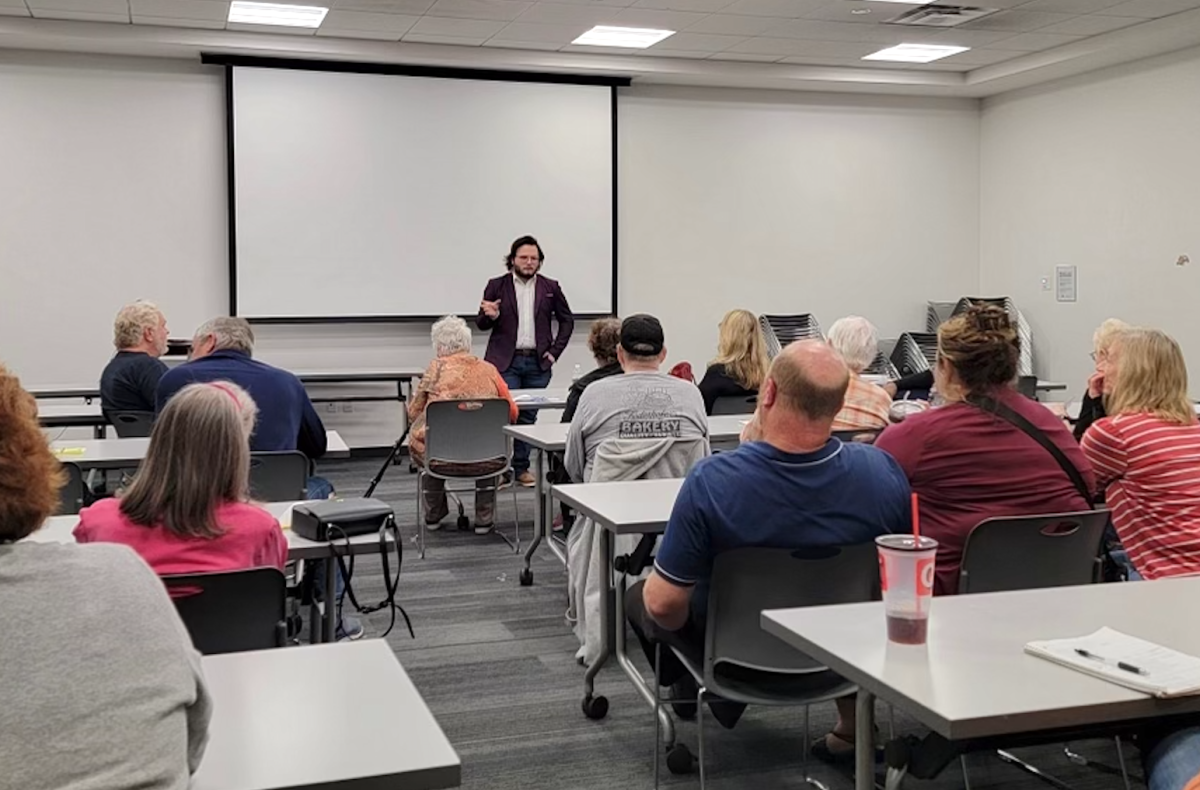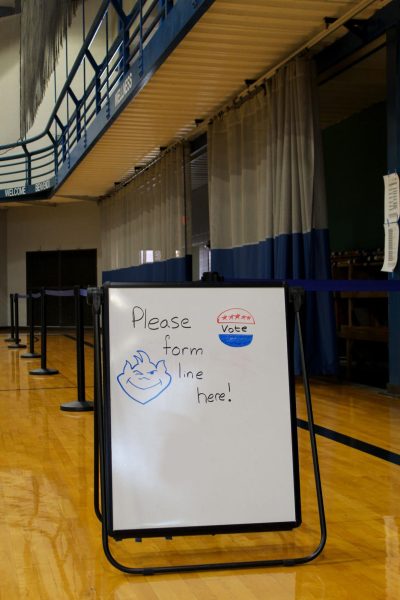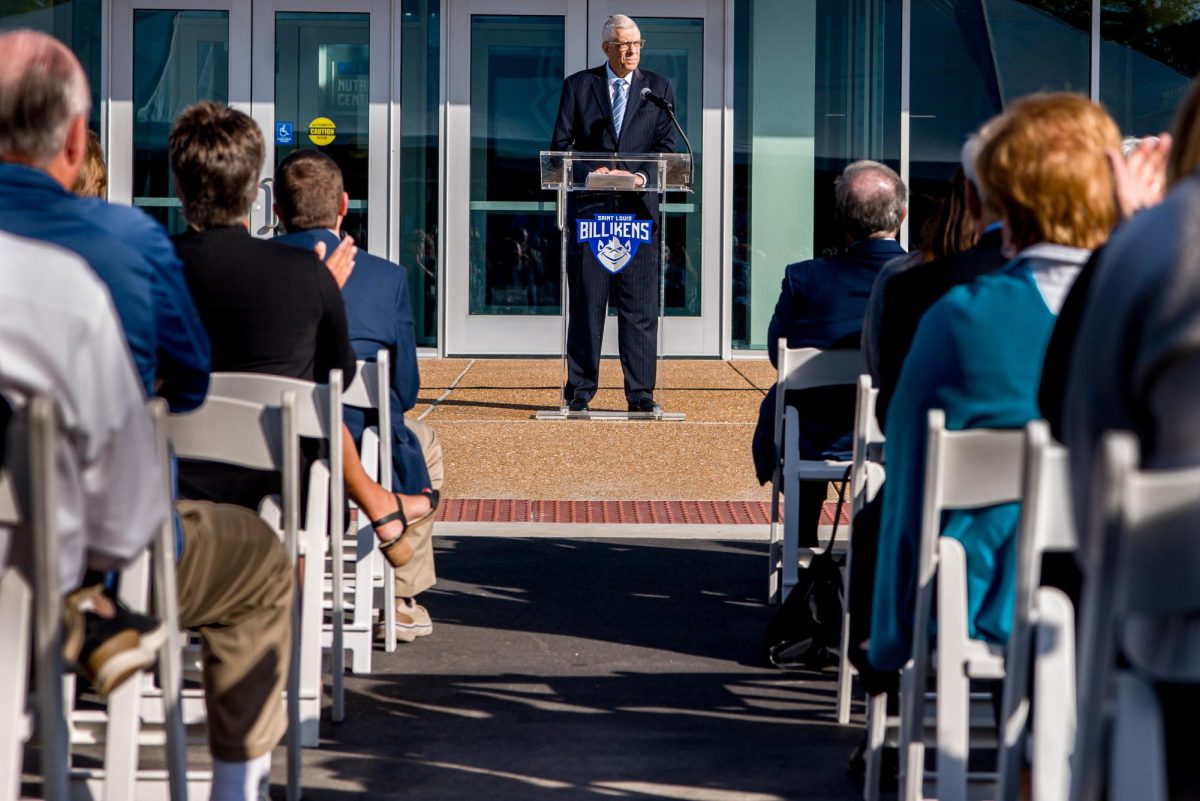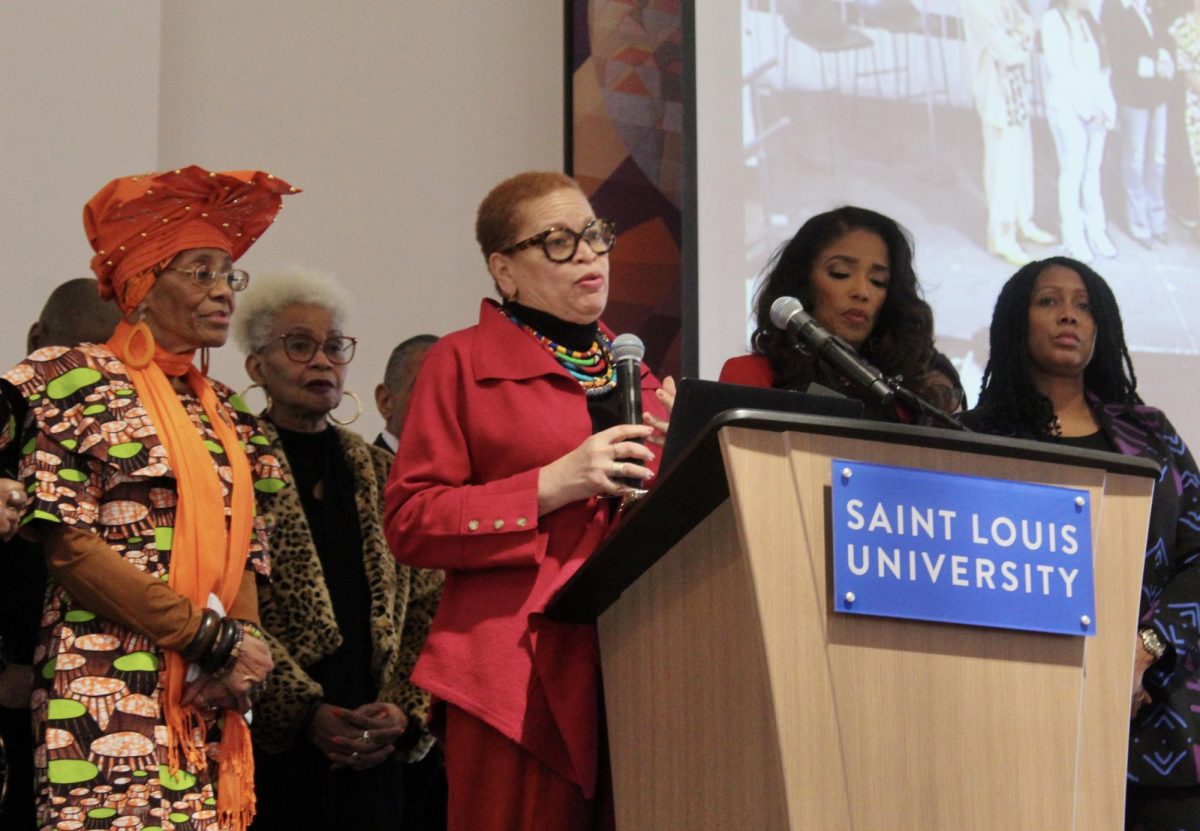Through the grueling academic process of the Spring semester, SLU sophomore Gavin Bena has taken on an additional responsibility: a local political campaign.
After surveying political issues that face his hometown of Glendale, Missouri, a municipality of about 6,000 people and the home of Grant’s Farm, Bena said his local government needed a new perspective.
“In large part what I’m trying to do is come into this with a different perspective from the people that are already there, who are [an] expression of the government in many ways,” Bena said.
In December of 2023, Bena, a Political Science student and President of the SLU College Democrats, formally began his campaign for an open seat on the Glendale Board of Aldermen, a position he hopes will help him address the needs of his community. Currently, his primary opposition for the Ward 1 seat is Lisa Capshaw Cushing. Glendale Wards 2 and 3 are represented by unopposed incumbent candidates. His campaign, although complex in its aims, Bena said, can be synthesized into one central mission:“I want to fix problems.”
Among the specific issues the 21-year-old candidate is looking to address are budgetary alterations, especially those which impact lower income populations within the Glendale community. Additionally, he spoke on rising housing costs, which have doubled in the last six years, and street and parking issues, caused by the narrow nature of Glendale’s 20th-century traffic structure.
The most pressing of these issues, Bena said, is the housing crisis, a problem faced by municipalities across the country.
“I know that I will probably never be able to afford a house in the community that I have lived my entire life in at the rate things are going and if we don’t find a way to fix this problem,” Bena said. “So, that means talking to our board of adjustment and seeing what exactly we can do about redevelopments.”
While Bena’s ambitions have carried him to this point, he acknowledges that he alone cannot be a “magical figure that’s going to change the way our society works.” However, he also feels that a new way of thinking would be helpful to a Board largely composed of long-time local leaders.
“In local politics, people end up getting into the same way of thinking that people have always just fallen into, becoming part of the system and going through the motions rather than actually thinking and trying to come up with solutions to problems or taking action,” Bena said.
Young candidates face barriers
Bena is not alone in this sentiment. As national politics become more polarized, young people ages 18-29 increasingly feel as though the country is heading in the wrong direction.
According to a survey conducted by the Center for Information & Research on Civic Learning and Engagement, 76% of young people believe they have the power to change the country’s trajectory, while only 40% say they feel well-qualified to participate in politics.
Despite this, while the number of people 62 or older running for office has held steady, the number of young people running for elected office has increased over the past ten years.
The intensive campaigning process, even for a local position, can cause certain challenges for young people, said Steven Rogers, a SLU political science professor who specializes in American politics and political systems.
“Probably one of the key challenges that a student like this would encounter is it’s not free to run for office,” said Rogers, “The first kind of people you raise money from to help your campaign are friends and family, and I’m sure students would have some friends and family that can maybe contribute some dollars, but here, I bet most students at SLU don’t have quite the money that maybe someone in their 50s or 60s has to freely give a friend to run for office.”
Despite the potential obstacles young candidates may face, Rogers also emphasized both the effect that local elections have on communities and the importance of young people’s involvement in these elections.
During the COVID-19 pandemic, local school boards and county executives were primarily making decisions about school and commercial closures. Rent prices, another hot-button issue, are in part determined by the zoning decisions of municipal governments, including the Board of Aldermen.
Rogers added that there are many opportunities at SLU and around St. Louis for students to get involved in elections besides running for office.
“I do think campaigns are a very good way to really get involved and see how things are in action, but you can also take a lesser role in a campaign and just [say], I’m gonna go on a Sunday or Saturday and go volunteer and knock on doors,’” Rogers said.
In addition, internships for course credit through the Political Science department, whether on a campaign or in local government itself, can be great entries to the political sphere, Rogers added.
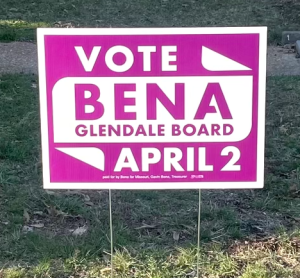
Seeking connections and advice
As Bena prepares for elections on April 2, he has been receiving advice from local and state politicians with whom he has formed connections with. While he has no formal campaign staff, he said these connections have been vital to his pursuing a career in politics.
He mentioned his friendship with John Kiehne, who’s running for a Congressional seat in Missouri’s 2nd district, and the advice that Kiehne has given him in running his campaign.
“One night after an event, we walked out of the library and just stood in the cold night for about three hours talking about campaign strategies in the middle of a parking lot, that was very fun, because he’s a great organizer,” Bena said.
Bena believes that his extensive social media presence will also help him connect with voters in his municipality. As of Feb. 28, 2024, Bena has 5,524 followers on X, where he routinely posts content concerning issues he’s passionate about.
“Social media is a critical component of any modern campaign,” Bena said.“And, while I wouldn’t expect to win an election based on my follower count alone, it’s simply how most folks connect with each other now.”
On Feb. 27, Bena filed to run for Secretary of State in the statewide Missouri elections, but withdrew the next day in order to fully focus on his campaign for Alderman.
For those interested in further political action, Rogers recommends contacting SLU’s Center for Social Action, which connects students with opportunities for involvement. They can be contacted at: [email protected]


